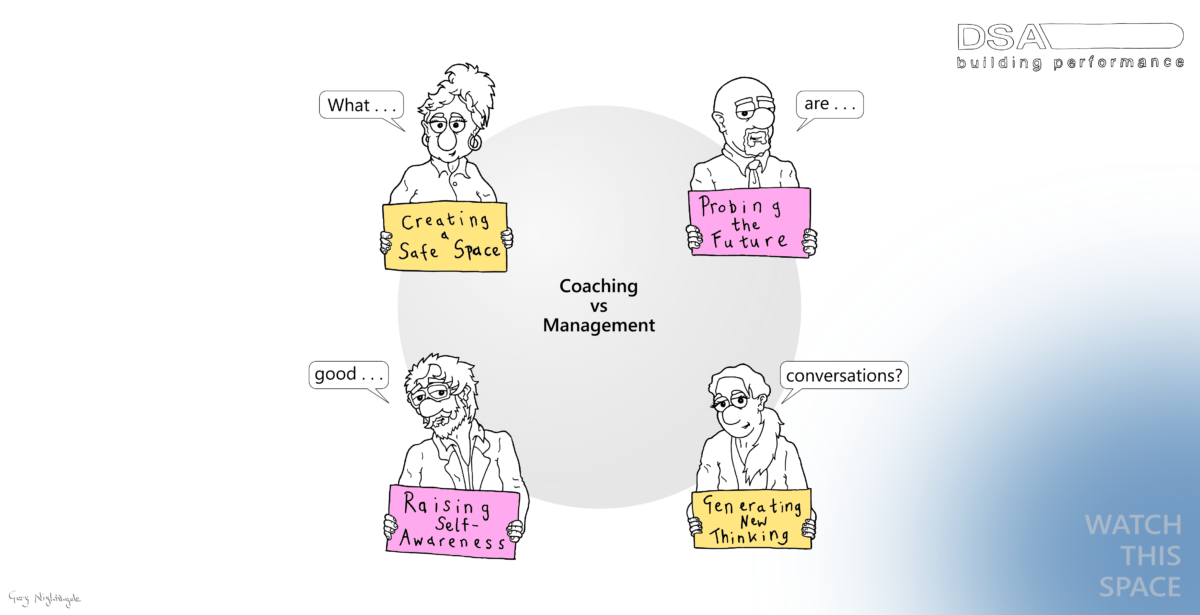Coaching vs. Management

I may have mentioned that I’ve got this big idea.
I believe companies could radically improve their performance if they embraced a coaching culture.
That means that instead of management just managing everyone below them, they begin coaching them, too. The idea is that coaching becomes integral to the way we interact everywhere in the company.
Some managers do this instinctively already, but most don’t, and the dominant culture in construction is not a coaching one, at all.
Instead, it’s the traditional management style of carrot-and-stick, which relies on incentives, threats and pressure.
What’s the difference?
Twenty-five years ago, my first coach said to me, “Life is a conversation.”
When I asked what he meant, he said, “Dave, think about it,” and I have done ever since.
I think our success depends on the conversations we’re having: the quality of them, and who we’re having them with.
Frustration and poor results arise when conversations are poor in quality, or just don’t happen between the people who need to have them.


Coach for Results
Designed with young professionals in mind
Perform better in your current role, become an effective manager and over time a great leader and together we will change the construction industry.
What are good conversations?
Let’s assume the people who report to you know the result they’re accountable for, and want to achieve it.
As boss, you can harp on about it and threaten bad consequences if they don’t achieve it, but if that isn’t working, it sours into a bad conversation.
So, what do good conversations look like, then?
I think they do four things.
First, people need to feel safe to operate at their best, so a good conversation creates space for them to think clearly and work out their own way forward.
Second, good conversations probe the future, examining in some detail where people need to get to and what it is about their own approach they might need to develop in order to do it.
Third, good conversations raise self-awareness in your people, which then raises their responsibility to act on that new awareness to move forward.
Fourth, good conversations generate new thinking about the issue, which you both need because old thinking leads only to more of the same.
Two main tricks
These are good conversations indeed. Are you having them?
There are two main tricks to it: a) listening, and b) asking questions that prompt reflection. You can’t do one without the other.
This is what coaching is. It’s being a partner on a forward journey.
Coaching is not about helping someone recover from something terrible in their past – that’s counselling. Nor is it about giving advice, telling what to do or sharing the benefit of your experience.
I’m not saying it’s easy; it isn’t. Try not giving advice and listening instead, you will see what I mean. But coaching is a skill that can be learned.
That takes me closer to revealing what my big idea looks like, so watch this space.
